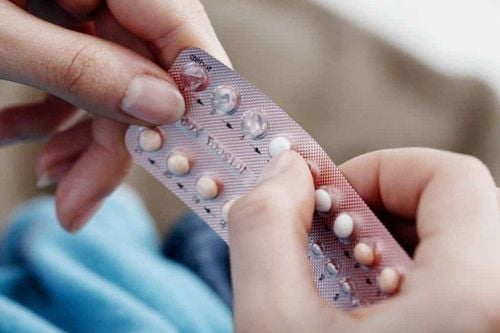Rupafin 10mg is effective in treating allergic rhinitis and hives. The drug can be used even without a doctor's prescription, so you can find it at all pharmacies nationwide.
1. What is Rupafin?
Rupafin 10mg belongs to the group of antihistamines and anti-allergy drugs, with the main ingredient being Rupatadine. This is a second-generation antihistamine, which has the effect of prolonging selective antagonist activity. The drug is prepared in the form of round tablets containing 10mg of Rupatadine, used for people 12 years of age and older. The drug is packaged in a box of 1 blister, each blister containing 10 tablets.
2. Uses of Rupafin 10mg
The drug is often used for hives in adults and children 12 years of age and older. In addition, the drug can be used to treat allergic rhinitis.
Rupatadine has a prolonged selective antagonistic effect on peripheral H1 receptors. In addition, some of its metabolites still have antihistamine properties. Therefore, they can support the overall effect of the drug.
3. Dosage and administration of Rupafin 10mg
Rupafin 10mg is used orally, the whole tablet should be swallowed, do not chew before swallowing. Below is the specific dosage of Rupafin 10mg for each subject:
- For children over 12 years old and adults: Patients should use 10 mg of the drug corresponding to 1 tablet, taken once a day.
- For the elderly: Caution should be exercised when using the drug for this group of subjects.
- For children: Doctors recommend not using the drug for children under 12 years old. Children aged 6 - 11 years old should only use the drug in the form of an oral solution with a dose of 1 mg/ml.
- For patients with liver and kidney failure: There have been no clinical studies on the use of the drug for patients with liver and kidney failure. However, to ensure the safety of users, it should not be used only for patients taking the drug.
The dosage of the drug may vary depending on the patient's condition and the progression of the disease. To get the correct dosage for your condition, you should consult a specialist or a specialist for more detailed advice.
4. What should you do in case of overdose?
Overdose with Rupafin 10mg rarely occurs. According to a study on the safety of the drug, when the patient was given a dose of 100mg/day continuously for 6 days, the patient's body still tolerated it well. Only a few side effects were observed, the most typical being drowsiness.
In case you use more than the prescribed dose, you need to use supportive measures and treat the symptoms at the same time.
5. What to do if you miss a dose?
When you miss a dose, you need to take it as soon as you remember. However, if it is close to the time for the next dose, you should skip the missed dose and take the medicine as usual. You should not double the dose to make up for the missed dose. This can cause you to have problems with overdose.
6. Unwanted side effects when using Rupafin 10mg
Like other drugs, in addition to the effects that the drug brings, there are still side effects that can occur in some subjects.
In a clinical study of Rupafin 10mg for 1 year, conducted on 2025 patients, the most common symptoms were drowsiness, headache, and fatigue. Most of the side effects of the drug are mild to moderate and do not require stopping the drug. The frequency of side effects during the specific trial is as follows:
- Uncommon: Rhinitis, pharyngitis, increased appetite, loss of concentration, nausea, abdominal pain, diarrhea, mouth and throat pain, rash, back pain, muscle pain, arthritis, etc.
- Common: Dizziness, headache, dry mouth, fatigue, weakness, irritability, etc.
Patients should stop using the drug immediately if they observe one of the above side effects in their body, and take the patient to a medical center for timely treatment.
7. Note when using Rupafin 10mg
- Doctors should not prescribe the drug to patients with a history of allergy or sensitivity to the ingredients of the drug.
- Do not use Rupafin 10mg with grapefruit juice, as this may cause drug interactions that affect the user's health.
- Caution should be exercised in patients with prolonged QT interval, uncorrected hypokalemia, arrhythmias, and myocardial infarction.
- Do not prescribe the drug for people with galactose intolerance (hereditary), lactase enzyme deficiency, or glucose-galactose intolerance because the tablet contains lactose monohydrate.
- For pregnant or lactating women, it is recommended to limit use, unless prescribed by a doctor.
To arrange an appointment, please call HOTLINE or make your reservation directly HERE. You may also download the MyVinmec app to schedule appointments faster and manage your reservations more conveniently.













